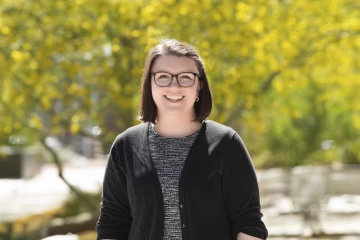Study of infertility, health among women of Mexican heritage funded by $2.2M NIH grant
A cross-border research project will seek to identify Hispanic women at risk of developing chronic diseases who may benefit from early screenings or interventions.

Female infertility is often associated with greater risks of cancer, cardiovascular disease and premature mortality. Hispanic women are up to 70% more likely to experience infertility than white women, prompting University of Arizona Health Sciences researchers to study ways to identify at-risk individuals.
Photo by Daniel De La Hoz via Getty Images
Researchers at the University of Arizona Health Sciences and the Instituto Nacional de Salud Pública in Mexico are using a $2.2 million National Institutes of Health grant to explore the link between infertility and long-term health issues among Hispanic women of Mexican heritage.
According to recent research, female infertility is often associated with greater risks of cancer, cardiovascular disease and premature mortality. Hispanic women are up to 70% more likely to experience infertility than white women, yet little is known about their long-term health.

Leslie Farland, ScD, is an associate professor at the Mel and Enid Zuckerman College of Public Health and member of the U of A Cancer Center.
Photo by Noel Haro-Gomez, U of A Health Sciences Office of Communications
“Hispanics are the largest minority group in the United States, and 60% of Hispanics have Mexican heritage. We need to know more about infertility and related health risks in this group,” said Leslie Farland, ScD, an associate professor at the Mel and Enid Zuckerman College of Public Health and member of the U of A Cancer Center who is collaborating with Dalia Stern, PhD, of the Instituto Nacional de Salud Pública to lead the study. “We hope this project is the first step toward personalized screening recommendations that improve women’s health and lengthen women’s lives.”
Researchers hope to determine the risk of breast cancer and gynecological cancers, including endometrial and ovarian cancer, for women with a history of infertility compared with those who have given birth.
They also will investigate the risk of heart disease and premature mortality for women with a history of infertility.
The goal of the study, which is co-funded by the Eunice Kennedy Shriver National Institute of Child Health and Human Development and the Office of Research on Women's Health, divisions of the National Institutes of Health, is to inform personalized care strategies for millions in this population and improve health outcomes through early screenings and interventions.
Farland said existing research on infertility and long-term health outcomes among Hispanic women is sparse. Among the studies that have been conducted, there are key limitations, such as short follow-ups, small sample sizes and a lack of detailed information on infertility histories, diagnoses and treatments.
She has been collaborating with the Instituto Nacional de Salud Pública since 2016, including using data from the Mexican Teachers’ Cohort study. More than 115,000 women enrolled in the Mexican Teachers’ Cohort study in 2006 and are still providing data 18 years later.
“Research on this topic requires large samples with detailed, longitudinal data,” Farland said. “It can only be accomplished by bringing together international experts and data sources.”
“I’m very proud of the research Dr. Farland does on women’s health,” said Iman Hakim, MD, PhD, dean of the Zuckerman College of Public Health. “This collaborative study is another example of her smart, insightful approach. We are especially pleased to be working with the Instituto Nacional de Salud Pública to gather data on infertility that will benefit millions of women in both countries and around Arizona.”
The research team also includes U of A Cancer Center members Denise Roe, DrPH, a professor of biostatistics at the Zuckerman College of Public Health, and John Ruiz, PhD, a professor in the U of A College of Science’s Department of Psychology and the Cancer Center’s associate director of inclusivity, diversity, equity and accessibility.
This research is co-funded by the National Institute of Child Health and Human Development and the Office of Research on Women's Health, divisions of the National Institutes of Health, under award No. R01HD114871.
Expert
Leslie Farland, ScD
Associate Professor, U of A Mel and Enid Zuckerman College of Public Health
520-626-8025, lfarland@arizona.edu
Contact
Shipherd Reed
U of A Mel and Enid Zuckerman College of Public Health
520-626-9669, shipherd@arizona.edu

